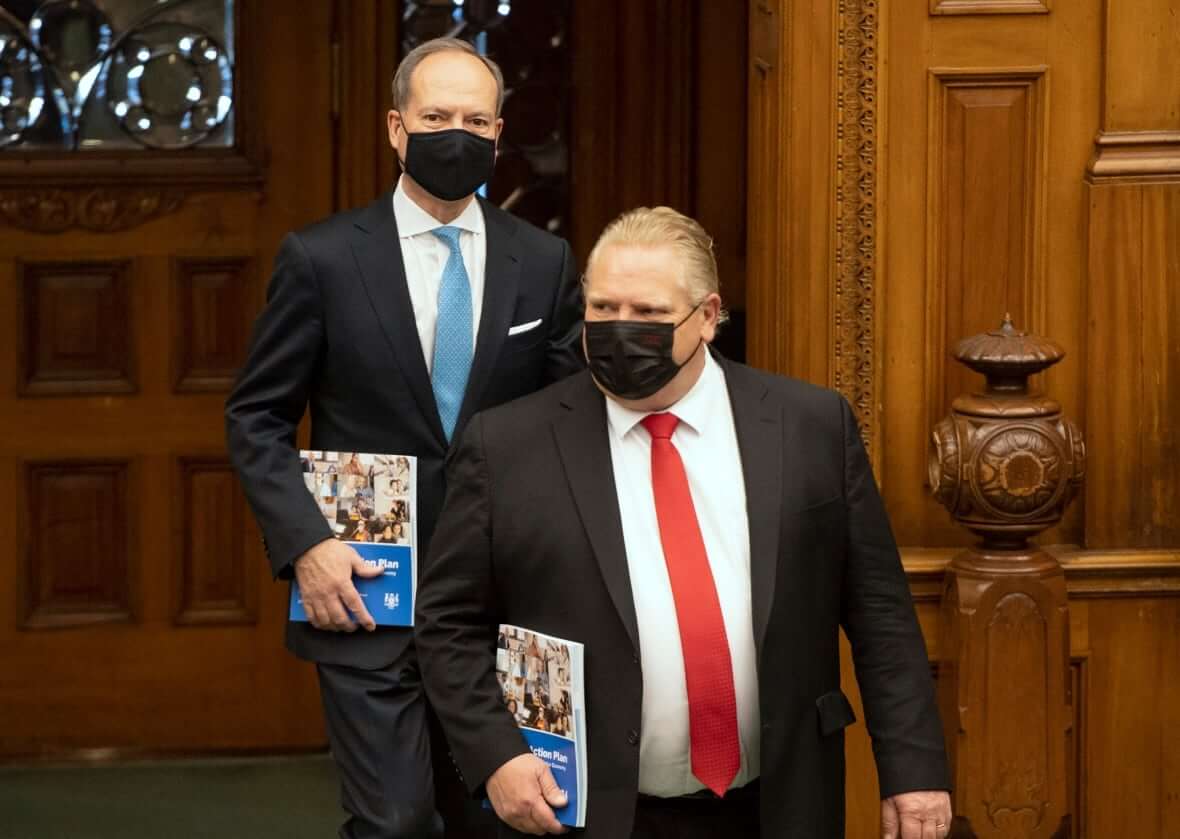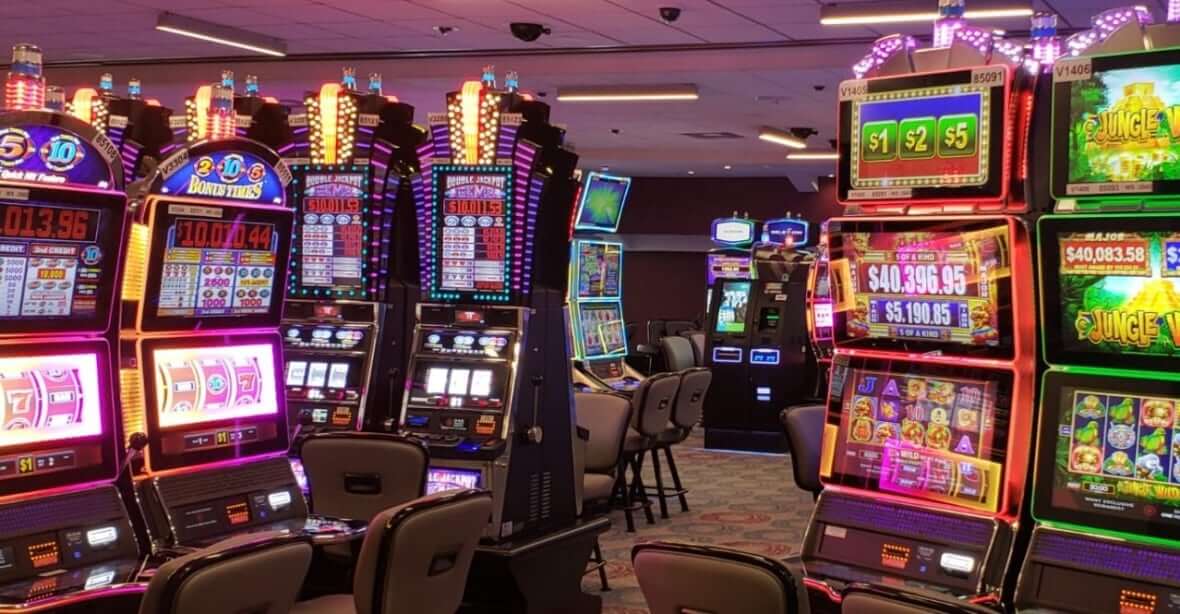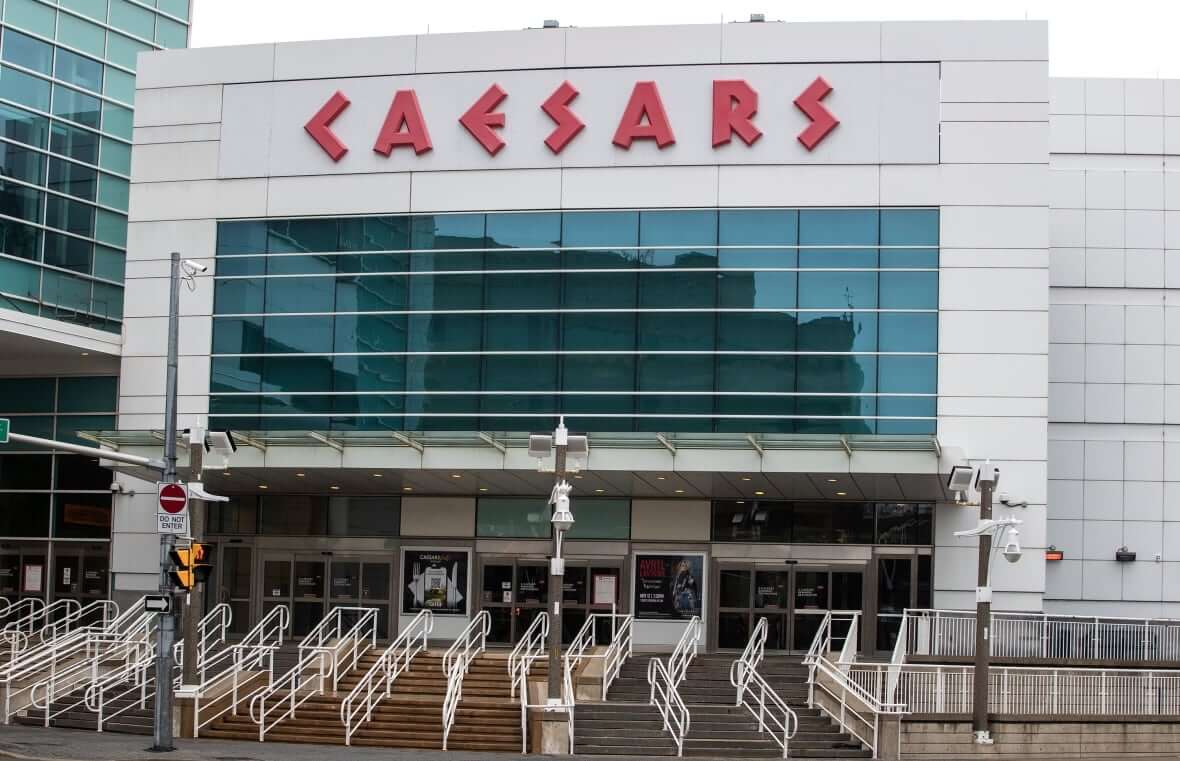Ford government could lose $2.8B over 5 years in online gambling bet, confidential report warns

As Premier Doug Ford’s government prepares to open up the online gambling market in Ontario, there’s a warning that its plans could see the province and municipalities lose out on hundreds of millions of dollars in annual revenue.
That warning is in a new report by a gambling industry consulting firm, obtained by CBC News. The report was prepared for Great Canadian Gaming, the company with the largest share of Ontario’s casino market.
Even though Ontario will have a new source of revenue from taxing the newly regulated online gaming sites, the report argues that the province will end up short-changed. That’s because it predicts a big shift in spending from land-based casinos to internet gaming.
Because the tax rate Ontario is expected to impose on online gambling sites is much lower than the percentage the government takes from casino spending, the report concludes that the province stands to lose out on $550 million in annual revenue for a total of $2.8 billion over the next five years.
Pre-pandemic, annual provincial revenues from lottery and gambling amounted to as much as $2.5 billion.

But companies involved in the online gaming sector say the report’s conclusions are flawed.
In particular, they question the key assumption underpinning the report: that existing casino customers will suddenly start spending much less of their money in casinos and more on internet gambling websites that are already available to them.
“When the regulated market opens in Ontario, nothing is going to change in respect to players’ entertainment habits,” said Jeffrey Haas, senior vice-president of DraftKings Inc., which offers U.S.-based online sports betting and online casino products.
“People who are playing in online casinos and online sportsbooks and online poker rooms will continue to do so, except they’re going to go from playing offshore to onshore,” he said in an interview. “And anybody who continues to walk into real casinos in order to play games there will continue to do so.”
Officials from Great Canadian Gaming declined CBC’s request for comment about the report’s findings.

The report by HLT Advisory Inc., titled Ontario Gaming Market Assessment, is labelled “Private & Confidential” and dated Jan. 11.
It says the government’s proposed “open licence” model for e-gaming will result in online sites more than tripling their share of Ontario’s overall gambling market, estimated at around $7 billion a year.
“If an open-licence e-gaming model is implemented in Ontario, e-casino would capture a significant share of the total casino market,” says the report, basing that conclusion largely on the U.K.’s experience after opening its e-gaming market in 2005.
Land-based casinos in Ontario must currently hand over 55 per cent of net gambling proceeds to the province. The Ford government has yet to announce what percentage it will take from regulated online gambling sites, but the report bases its assumptions on a 20 per cent tax rate, which industry sources say is likely accurate.
Finance Minister Peter Bethlenfalvy, who is responsible for Ontario’s internet gambling regime, declined a request for an interview.
Ontarians spend up to $1B a year gambling online
Ontario’s casinos have been hammered during the COVID-19 pandemic. They were completely shut down for months, and when they were allowed to reopen, they faced capacity limits. Travel restrictions at the border also meant casinos in such cities as Niagara Falls and Windsor were starved of their U.S. customers.
All casinos in Ontario are currently shut down right now under the province’s latest restrictions, brought in on Jan. 3 as a result of the Omicron variant of COVID-19.
Industry figures estimate that Ontarians spend some $500 million a year on internet gambling, nearly all of it on companies that operate outside of Canada. The provincial government puts the figure at $1 billion.
Sites such as PokerStars, JackpotCity and Bet99 advertise widely to Ontario audiences, and there is no enforcement stopping Ontario residents from gambling online through sites based in other jurisdictions.
Last July, the government announced the creation of iGaming Ontario, the agency that will oversee the online gambling offered by the companies that sign agreements with the province.

CBC News asked the Ministry of Finance to provide its forecasts for the impact that online gambling will have on provincial revenues.
The province has not incorporated e-gaming into its financial projections, but more information may be provided in the next budget, said ministry spokesperson Scott Blodgett.
“The government intends to establish a competitive market for online legal gambling that will reflect consumer choice while minimizing the risks to consumers who play on these websites,” said Blodgett in an email.
“The new iGaming market is being developed to exist in parallel with land-based gaming activities in Ontario’s regulated market, and not detract from [Ontario Lottery and Gaming’s] revenue generation.”
Just how much online gaming will eat into Ontario casino revenue is a hotly debated question, says Paul Burns, president of the Canadian Gaming Association, which represents companies in all sectors, including land-based and web-based operators.

“Drawing comparisons from different markets in different jurisdictions” may not be an accurate picture of what will happen when Ontario starts regulating online gaming, Burns said in an interview.
“Online gaming is [in Ontario], it’s just not regulated, it’s not controlled. It’s not put to the same regulatory standards the casinos are held to,” he said.
Ontario’s casino operators want to have a role in the online gaming market, and a level playing field with the online-only operators, said Burns.
“They’re anxious to be able to participate and compete and create an opportunity for their own customers who may be gambling on other people’s sites, to try and bring them back into their business,” he said.
The consultant’s report predicts the changes will result in land-based casinos shrinking their workforce by 25 per cent, resulting in the loss of some 2,500 jobs.

“I am deeply concerned about the impact this is going to have on jobs, but also the overall impact on our communities and province,” said Jerry Dias, national president of Unifor, the union that represents the bulk of the 10,000-strong casino workforce in Ontario.
“From a jobs point of view or an economic strategy point of view, it’s a fool’s game,” said Dias in an interview. “It doesn’t make any sense to me at all.”
Ontario municipalities that host casinos would also lose out on $35 to $40 million in annual revenue, according to the consultant’s report.
“There is cause for concern, but we’re not overly concerned,” said Dave Ryan, the mayor of Pickering, Ont., where a casino with 2,400 slot machines opened last summer just off Highway 401. The municipality is projected to take in $14 million per year in proceeds.
“We believe that there is always going to be room for the bricks-and-mortar gaming,” he said in an interview. “We’re social animals. People like to get out, congregate and enjoy that experience. Plus there’s the entertainment factor that you don’t have online.”






Redes Sociais - Comentários